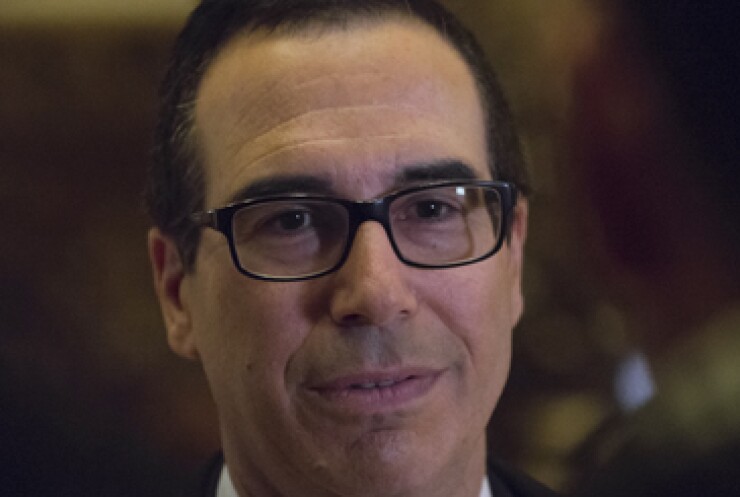
President-elect Donald Trump's tax overhaul may include capping the mortgage interest deduction, according to Treasury Secretary-designate Steve Mnuchin.
"We'll cap mortgage interest but we'll allow some deductibility," said Mnuchin in a CNBC interview Wednesday.
Speculation that the MID could be revisited had emerged prior to the election, although post-election, another member of Trump's economic advisory council said there were
Although that was true at the time, the MID is now something Trump's administration, Mnuchin and Commerce Secretary-designate Wilbur Ross are looking at.
The industry might be open to a change to the MID if it were part of a larger package of tax cuts that more broadly increased borrower spending, Mortgage Bankers Association CEO David Stevens had initially
Part of the reason lenders have been willing to consider changes to the MID has been that it has been identified as a deduction that helps the middle and upper-middle class
The plans for tax reform the Trump administration, Mnuchin and Ross have been working on would be beneficial for the middle class, but not the upper-middle class, the Treasury Secretary-designate said.
"Any reductions we have in upper income taxes will be offset by less deductions so that there will be no absolute tax cut for the upper class. There will be a big tax cut for the middle class," said Mnuchin.
Other mortgage-related proposals Mnuchin and Ross indicated they are working on include removing secondary mortgage market agencies Fannie Mae and Freddie Mac
"The first thing we're going to do is look at Dodd-Frank and it is way, way, way too complicated, and there are aspects of it that we've got to kill," said Mnuchin in a Bloomberg interview Wednesday. "There [are] many aspects of it that prevent banks from lending and we want to make sure banks lend."
The average small bank "now has more compliance people than lending officers. That's a very flawed business model. That's not the way to run a bank," Ross said during the Bloomberg interview.
"Government is not the right way to allocate capital. Private sector is the right way. Look at Fannie and Freddie. The two things that government had the most influence on. They're not exactly role models," he said.
The Treasury bailed out Fannie and Freddie and put them in conservatorship in the wake of the downturn. More recently they have generated a net profit for the government, but their current directives to shrink make them increasingly likely to experiencing future losses.





